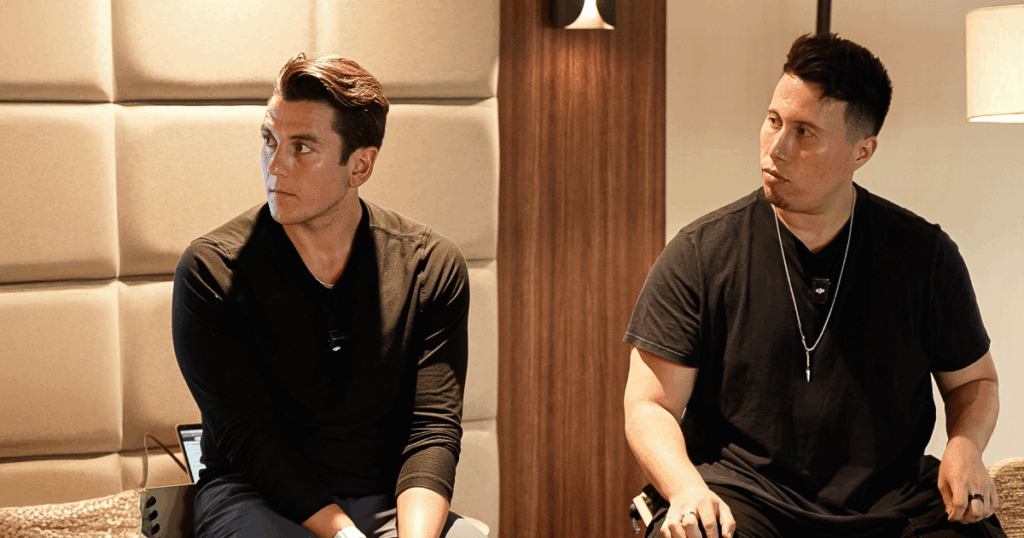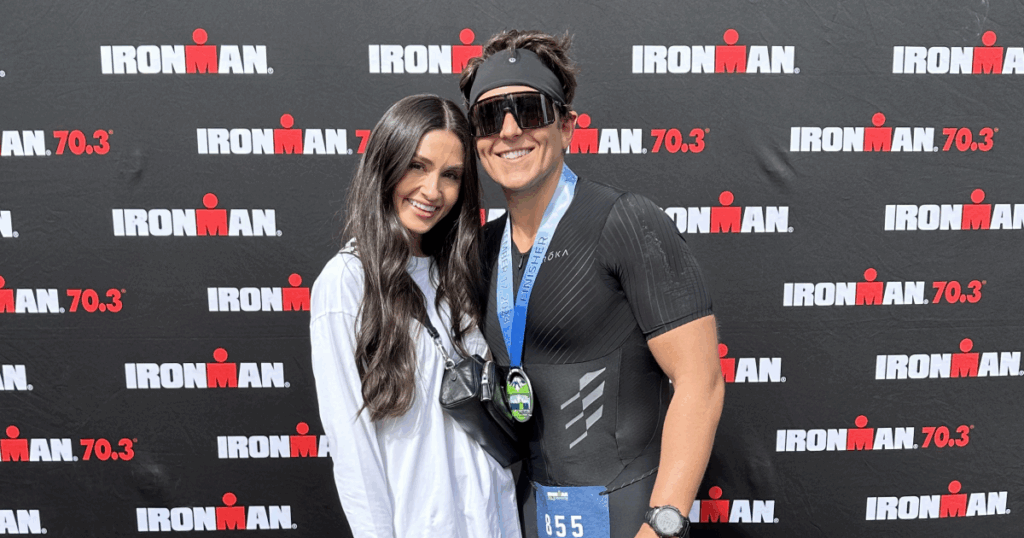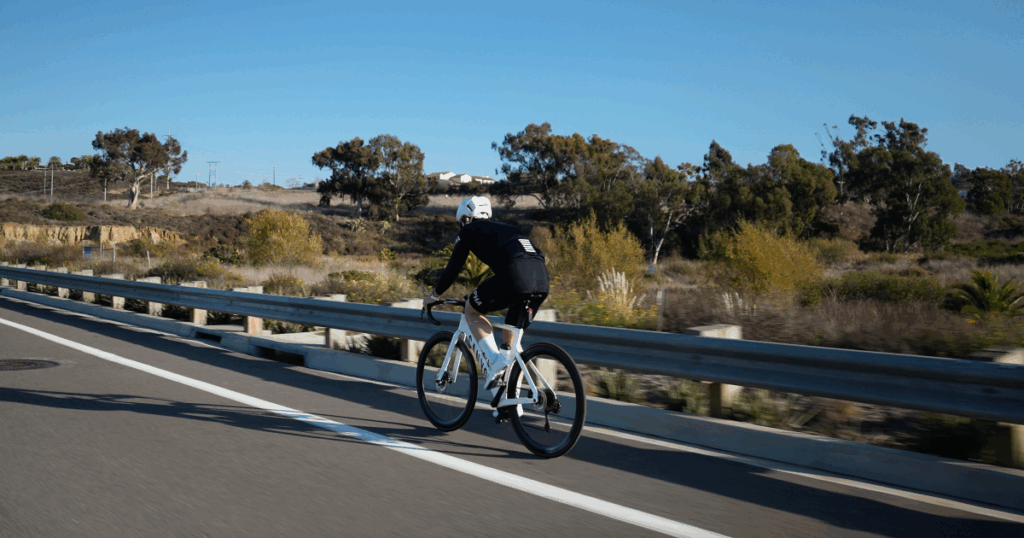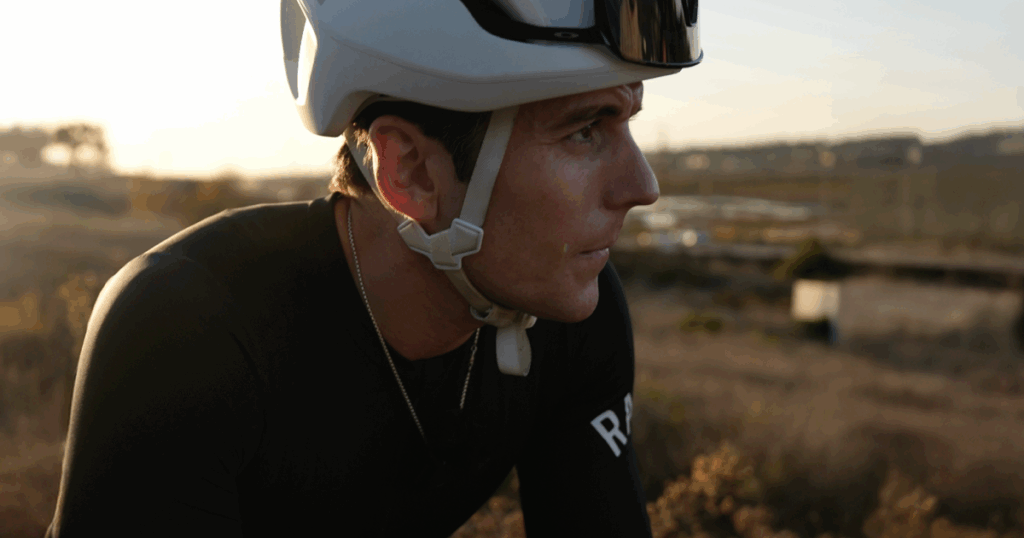Some people don’t need to be splashed all over social media. They prefer the quiet work, the quiet success, and the satisfaction of helping others be their best selves. For some, starting at the bottom becomes their identity, a testament to the fact that they clawed their way up.
But for others, the goal is to ensure that no one else ever has to be where they’ve been. For them, the challenge is the journey, not the destination, as overplayed as that mantra might be.
Ever met someone who’s competed in an Ironman? It’s not for the faint of heart. All those miles, all that pain — it’s a war of attrition. But one of the first things you notice when talking to Austin Schneider is how deeply grateful he is just to be here at all, considering his humble beginnings. For Schneider, hardship is a backstory, not a blueprint.
The Lore

He grew up in a broken home. A brother struggling with addiction. Parents who split up. Nowhere to go. Like so many, he had to make a choice early: be for the streets or find a way to rise above. At 19, he was working a call center job while trying to break into the trades. That’s when everything changed. The company’s owner, someone with a similar background, saw something in him.
“He was like, dude, I see a lot in you,” Schneider recalls. That led to a role in business development. From there, he sold TV advertising, the youngest in the department, but a top rep.
Eventually, he found his way to real estate. He shared tips online. Curiosity became demand. Demand became a business. Not bad for a guy who once figured his best shot was construction or maybe becoming a cop.
“I grew up thinking life was just: wake up, go to work, come home, crack a beer, repeat. I had no degree, no exposure to entrepreneurship, and definitely didn’t think I had whatever ‘it’ takes. But then I met someone like me — divorced parents, rough background — who made it. That’s when it hit me: maybe hard work could be enough.”
A Different Kind of Education

Coming from a working-class background shaped how he now markets to people without college degrees. “It builds the work ethic you need to persist when things suck,” he says. “For me, it was a pain — getting evicted, living with friends, not knowing if groceries were coming. That kind of hardship sticks with you. That’s why authenticity is everything. I’ve seen the sharky side of this business. I’m not into ego or flash. I just want to add real value.”
Most “coaches” don’t make it — 81% of coaches drop out by year three, and 90% never get past scraping by. Schneider saw that churn firsthand and built his agency to counter it.
In the broader world of small business, the odds aren’t better: 20% fail in year one, 50% by year five. Fewer than 4% ever crack $1 million in revenue. For agency owners, a 2024 study revealed that 68% work over 50 hours a week, and 43% experience revenue swings of 30% or more. It’s a grind that breaks most people, which is exactly why Schneider leans so hard into systems.
“At first, I was a freelancer with an ego. Now I’m a business owner with a team.”
A Man With a Plan

His company, AgencyU, teaches digital agency owners how to stop doing all the work themselves and build scalable business systems. They connect founders with operators who’ve scaled to seven figures, focusing on operations and client acquisition. One red flag they address: founders who get stuck in the day-to-day instead of building something that lasts.
“I was at a coffee shop with this guy in the social media space, and he told me, ‘I just don’t think that’s a scalable business.’ It was discouraging. But once we signed clients and made real money, I had that ‘holy shit’ moment. When you’re deep in the work, it’s hard to zoom out. You feel like you’re not doing enough. But then people start reaching out for help, and it clicks: Maybe we’re actually doing something meaningful.”
Many people in this space pretend to be successful. Schneider knows the difference. “I thought the business was about me, my skills, my hustle. Ego played a role. But the real growth came when I learned to delegate, build systems, and see the business as bigger than me.”
Schneider and his wife left Seattle for San Diego, where he began training for Half Ironman races — triathlons that push you to your edge but still leave room to grow. He’s completed four of them so far and is currently working toward the full Ironman: a 2.4-mile swim, 112-mile bike ride, and 26.2-mile run. No breaks. One of the hardest endurance events in the world.
Matt Fitzgerald, author of 30+ books on endurance, puts it this way: “The magnitude of satisfaction…is directly proportional to the amount of suffering.”
“Ironman is mostly a mental challenge. You can’t fake it,” Schneider says. “It forces you to be present. I got into it through a friend and realized it’s just like business: show up, train daily, trust the repetition. It’s wild what we’re capable of when we commit.”
Time and Freedom: True Measures of Success

As we talked, it was clear: he’s at peace. A husband. A builder. A guy who wants to be present. “Time freedom matters. My wife and I both came from working-class families. We’re grounded by that. I’m proud of what we’ve built, but the business isn’t my whole identity. Running, doing these races, building relationships, helping others grow — that’s what makes it meaningful.”
He used to mistake burnout for progress, tying his worth to output. But now, hobbies and his marriage give him perspective. He’s playing the long game based on systems, delegation, and sustainability.
One green flag that came up again and again? His wife. “We started dating when I got into real estate. I’d just quit my job, had no savings. She’s always been supportive — emotionally, not just verbally. I’m super Type A, and she grounds me. That balance makes me better with my team. We’re best friends, not just husband and wife.”
Instead of chasing clout, Schneider is building with purpose. His motivators are his faith, his wife, and the desire to build something real.
“We’ve helped nearly ten people hit $80K–$100K months this past year. If you’ve built something that works, you’ve a responsibility to share it with others. That’s what we’re doing: helping burned-out operators become real CEOs.”
Being Who You Needed When You Were Younger

He doesn’t want to be the guy posting from Monte Carlo. He just wants to build systems that work. “Business is a system. It’s not your identity. You need a killer offer — productized, scalable, and delegatable. If your offer sucks, no marketing will save you. But if it works? You’re set.”
At the end of our conversation, we talked about his puppy, Benedict, and how he doesn’t wear an Ironman watch. Might be more of a Swatch guy. Timepieces aside, even success has a shadow. Some mornings, Schneider still wonders if he’s become the kind of person selling dreams to people like his younger self.
I doubt it.





